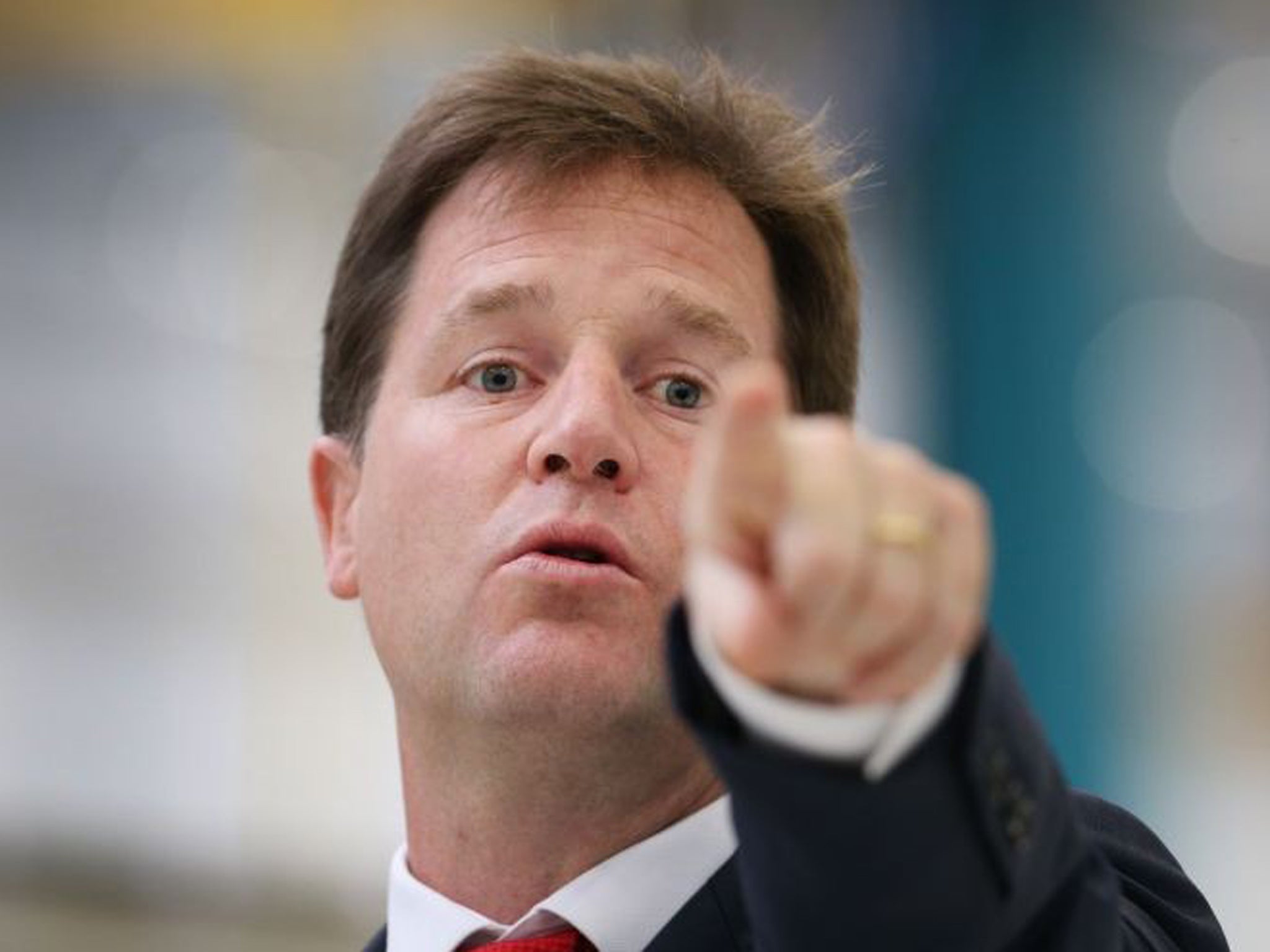Nick Clegg orders independent study into Bedroom tax
Research is underway to examine impact of controversial Government policy

Your support helps us to tell the story
From reproductive rights to climate change to Big Tech, The Independent is on the ground when the story is developing. Whether it's investigating the financials of Elon Musk's pro-Trump PAC or producing our latest documentary, 'The A Word', which shines a light on the American women fighting for reproductive rights, we know how important it is to parse out the facts from the messaging.
At such a critical moment in US history, we need reporters on the ground. Your donation allows us to keep sending journalists to speak to both sides of the story.
The Independent is trusted by Americans across the entire political spectrum. And unlike many other quality news outlets, we choose not to lock Americans out of our reporting and analysis with paywalls. We believe quality journalism should be available to everyone, paid for by those who can afford it.
Your support makes all the difference.Independent research into the impact of the so-called Bedroom Tax has been ordered by the Government, Deputy Prime Minister Nick Clegg said today.
Mr Clegg said the study was needed to find out whether tenants could opt to take a smaller house or flat to avoid a deduction in their benefits.
Under the reforms, tenants with one spare bedroom have had a payment reduction of 14 per cent and those deemed to have two or more spare have seen their benefits cut by 25 per cent. For special cases, councils have been handed a discretionary housing fund to help tenants pay their rent.
But Labour claim that because there is a shortage of smaller properties, many tenants cannot downsize and the fund is inadequate.
Research: Government's projected savings from bedroom tax were ‘exaggerated’
Labour deputy leader Harriet Harman said the shortage in social housing means only one in 25 households affected by the spare room subsidy can actually choose a smaller property without an extra bedroom.
Mr Clegg told the House of Commons today he suspected the problem varied across the country. He said research was now under way to determine the impact of the Government policy.
He said: "Of course, I accept that there will be cases where for some households this change from one system to another creates real dilemmas which need to be addressed through the money we are making available to local authorities.
"To be honest, I have seen lots of widely different figures being cited about the impact of this policy - that is why we are commissioning independent research to exactly understand the impact of this.
"I suspect it varies enormously between one part of the country and another, and one local authority and another. That is why we are trebling, as I say, the resources we are making available to local authorities."
He added that the Government was now providing "hard cash for hard cases". He said: "I am not at all seeking to ignore that there are some individual cases which really do need the flexibility and the money from local authorities so that they can be dealt with."
Mr Clegg's comments came after a question from Ms Harman.
In her question to Mr Clegg in the Commons, she said: "What you don't want to admit, obviously, is that for 96 per cent of tenants there isn't a smaller home to go to and so it is no wonder that the councils are saying that the discretionary housing fund on that basis is completely inadequate to help all the families who can't move and are falling into arrears.
"Will you recognise that this is a cruel and unfair policy that you shouldn't have voted for and will you repeal it now?"
Details of the study's findings will be reported in the autumn. A Government spokesman said: "The Department for Work and Pensions routinely commissions research on their new policies. The Deputy Prime Minister was referring to evaluation work already being carried out by an independent consortium into this policy."
Mr Clegg has not just faced pressure from Labour for supporting the policy. At the Liberal Democrat conference in Glasgow last month, many activists were angry at the party's support for the spare room subsidy and tabled a motion.
Activist Linda Jack, from Mid Bedfordshire, said she left the conference hall after the debate on the economy "wondering if there was still a place for me in this party".
Highlighting the policy, she added: "All I see is what appears to be an abandonment of our values."
PA
Join our commenting forum
Join thought-provoking conversations, follow other Independent readers and see their replies
Comments